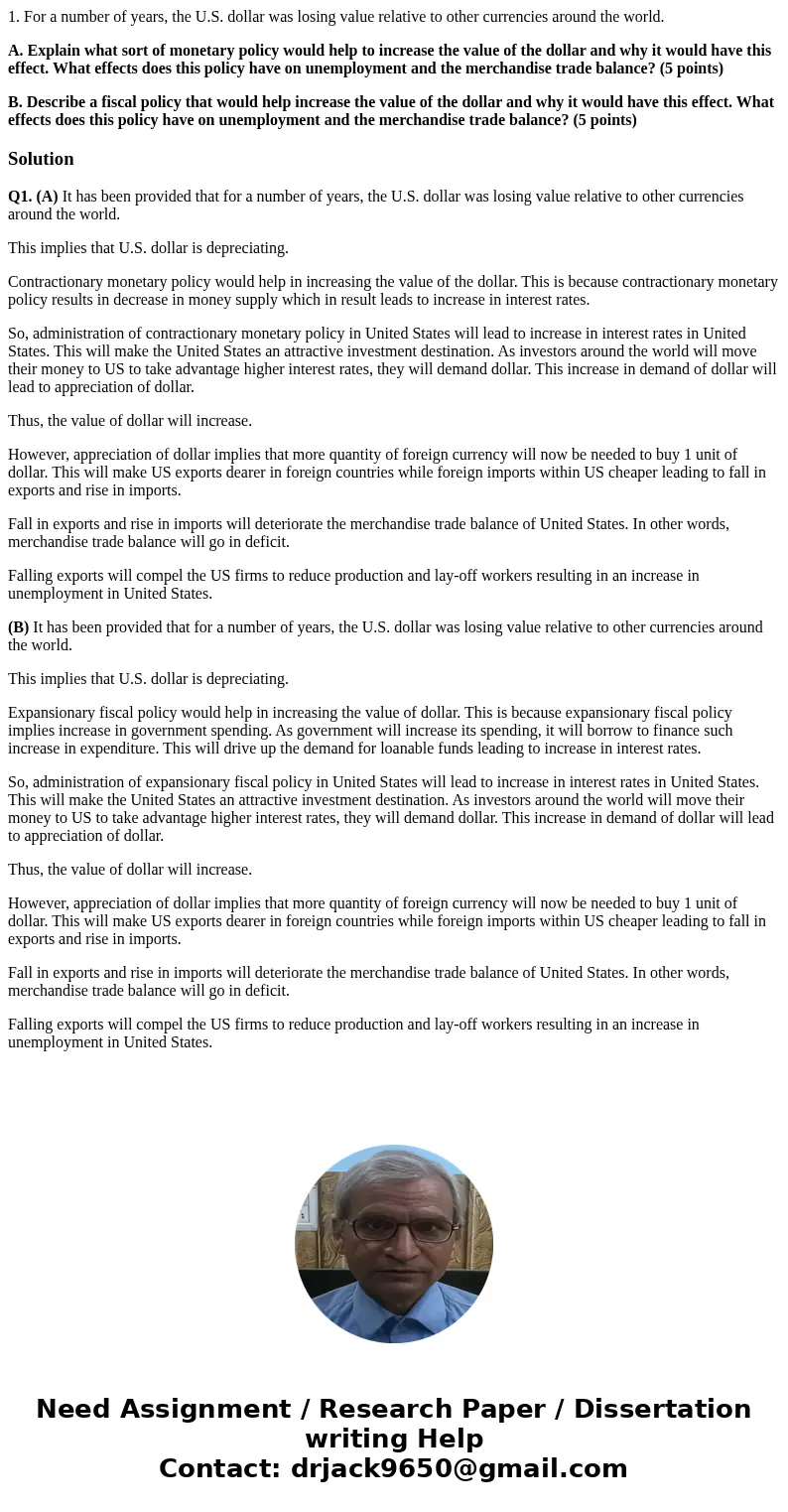1 For a number of years the US dollar was losing value relat
1. For a number of years, the U.S. dollar was losing value relative to other currencies around the world.
A. Explain what sort of monetary policy would help to increase the value of the dollar and why it would have this effect. What effects does this policy have on unemployment and the merchandise trade balance? (5 points)
B. Describe a fiscal policy that would help increase the value of the dollar and why it would have this effect. What effects does this policy have on unemployment and the merchandise trade balance? (5 points)
Solution
Q1. (A) It has been provided that for a number of years, the U.S. dollar was losing value relative to other currencies around the world.
This implies that U.S. dollar is depreciating.
Contractionary monetary policy would help in increasing the value of the dollar. This is because contractionary monetary policy results in decrease in money supply which in result leads to increase in interest rates.
So, administration of contractionary monetary policy in United States will lead to increase in interest rates in United States. This will make the United States an attractive investment destination. As investors around the world will move their money to US to take advantage higher interest rates, they will demand dollar. This increase in demand of dollar will lead to appreciation of dollar.
Thus, the value of dollar will increase.
However, appreciation of dollar implies that more quantity of foreign currency will now be needed to buy 1 unit of dollar. This will make US exports dearer in foreign countries while foreign imports within US cheaper leading to fall in exports and rise in imports.
Fall in exports and rise in imports will deteriorate the merchandise trade balance of United States. In other words, merchandise trade balance will go in deficit.
Falling exports will compel the US firms to reduce production and lay-off workers resulting in an increase in unemployment in United States.
(B) It has been provided that for a number of years, the U.S. dollar was losing value relative to other currencies around the world.
This implies that U.S. dollar is depreciating.
Expansionary fiscal policy would help in increasing the value of dollar. This is because expansionary fiscal policy implies increase in government spending. As government will increase its spending, it will borrow to finance such increase in expenditure. This will drive up the demand for loanable funds leading to increase in interest rates.
So, administration of expansionary fiscal policy in United States will lead to increase in interest rates in United States. This will make the United States an attractive investment destination. As investors around the world will move their money to US to take advantage higher interest rates, they will demand dollar. This increase in demand of dollar will lead to appreciation of dollar.
Thus, the value of dollar will increase.
However, appreciation of dollar implies that more quantity of foreign currency will now be needed to buy 1 unit of dollar. This will make US exports dearer in foreign countries while foreign imports within US cheaper leading to fall in exports and rise in imports.
Fall in exports and rise in imports will deteriorate the merchandise trade balance of United States. In other words, merchandise trade balance will go in deficit.
Falling exports will compel the US firms to reduce production and lay-off workers resulting in an increase in unemployment in United States.

 Homework Sourse
Homework Sourse